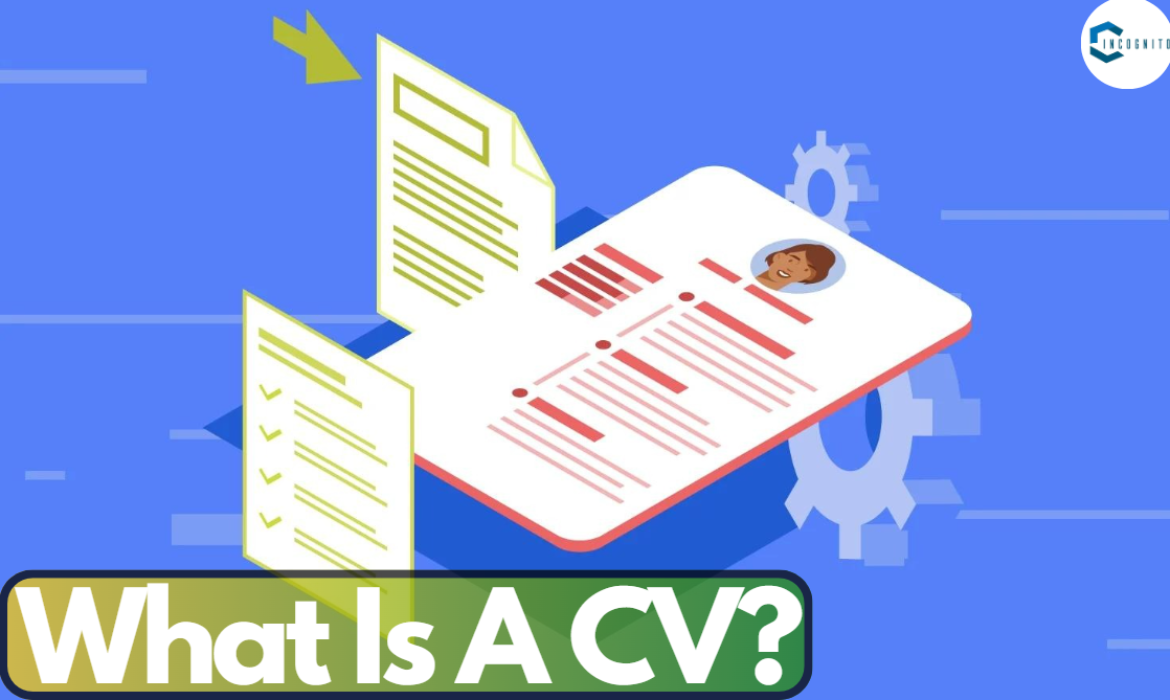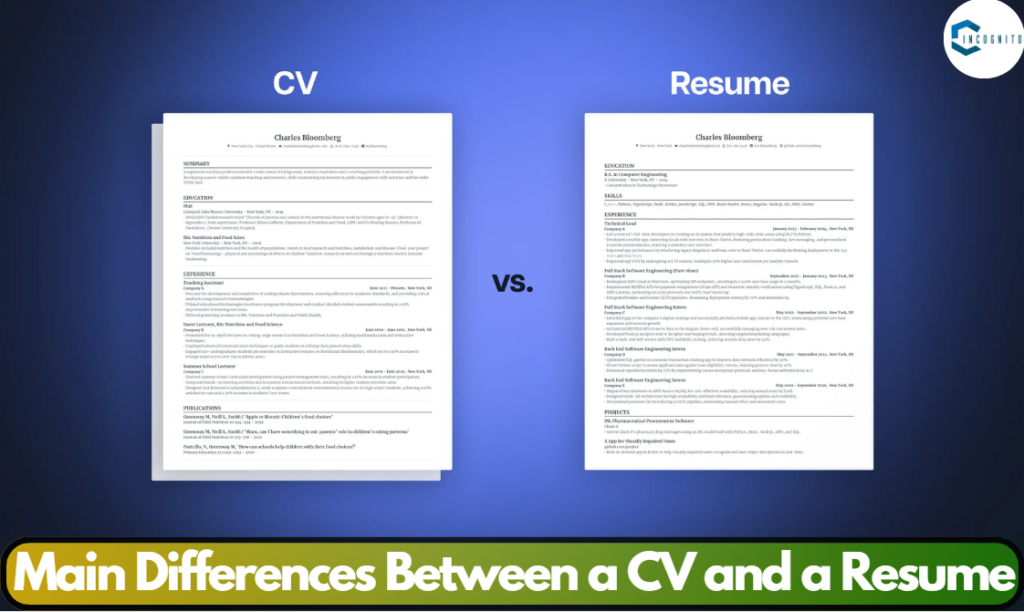
We all know how much frustrating and tiring is when we look for a job. Sometimes you will have all the talent and skills but the timing doesn’t match. Or maybe you don’t know how to present yourself to the potential employer so that you can come forward in the mob. That’s where a CV comes in the scene.
But what is a CV? How can it help you in getting a job? How is it different from a resume? You will get answers to these questions in this blog so stay tuned to the end.
What is a CV?
A CV means Curriculum Vitae (a fancy Latin term meaning “course of life”). Basically it is a detailed document that covers your entire professional journey which includes your education, work history, achievements, skills, publications, and any other relevant information. You can consider it as your professional autobiography in short.
What Is a Resume?
On the other hand, a resume is a shorter document that highlights your most relevant experiences and skills needed for the job you’re applying for. It’s like the movie trailer of your professional life where it has just the highlights to grab attention.

Main Differences Between a CV and a Resume
Main Differences Between a CV and a Resume
|
Aspect |
CV | Resume |
| Length | No strict limit (often 2+ pages) |
Usually 1 page |
|
Purpose |
Detailed overview of an entire career | Summary related to specific job |
| Content | All education, experience, publications |
Relevant skills and experiences |
|
Customization |
Generally the same for all applications | Customized for each job application |
| Use | Common in academia, research, and some countries |
Standard in most industries and countries |
When to Use Which?
- CV: If you’re applying for academic positions or research roles or jobs abroad (especially in Europe or Asia) then a CV is often required.
- Resume: A resume is the standard for most other jobs, especially in the United States and Canada.
How to Write Your CV to Get a Job Quickly (Top Secrets!🤫)
Tip 1: Start with a Strong Personal Profile
You should begin your CV with a brief overview of yourself. This is your quick introduction that tells employers who you are and what you’re looking for.
Example:
“An experienced marketing professional with over five years in the industry who is seeking a challenging role to apply my skills in online marketing and content creation.”
Tip 2: Keep It Organized and Easy to Read
You will have to use clear headings and bullet points. Try to break up large text. Recruiters spend just a few seconds scanning each CV so you should make it easy for them to find the important things.
Tip 3: Focus on Achievements, Not Just Duties
You have to highlight what you accomplished instead of just listing down what you did. You can use numbers and facts where possible for a good impression.
Example:
- Increased social media engagement by 50% in six months.
- Managed a team of 10 sales associates to achieve a 20% increase in sales.
Tip 4: Customize Your CV to the Job
You should read the job description carefully and include the keywords and skills that are mentioned. This not only shows that you’re a good fit but also helps your CV pass through any automated screening tools.
Tip 5: Include Relevant Skills
You can list skills that are relevant to the job. This can include technical abilities, languages, or soft skills like teamwork and communication.
Example:
- Proficient in Adobe Photoshop and Illustrator.
- Fluent in English and Spanish.
Tip 6: Don’t Forget Education and Training
You should include your degrees, certifications, and any training courses that you’ve completed. If you’re a recent graduate then you should place this section higher up on your CV.
Tip 7: Proofread Multiple Times
Spelling mistakes and typos can leave a bad impression. Thus you should double-check your CV and maybe ask a friend or family member to read it over.
Tip 8: Keep It Up to Date
You should always make sure that your latest experiences and skills are included. Update your CV regularly even if you’re not actively applying for a job. You never know when an opportunity might come.
Tip 9: Be Honest
You should always be truthful about your experiences and skills. It’s very tempting to exaggerate if one of your friends has given this advice but honesty is always the best policy. Remember that companies appreciate authenticity.
Tip 10: Add a Personal Touch
You should include hobbies or interests that make you stand out especially if they’re relevant to the job. This can make you more memorable to recruiters.
Example:
- Volunteer coach for a local youth soccer team.
- An avid blogger on tech trends and innovations.
Conclusion
It is time to sum up this blog. See writing a CV is a tough process where you will have to be careful. But you can make a good CV and get a job if you follow the above tips.
That’s it for now. Thanks for reading.
READ MORE ABOUT JOBS:





